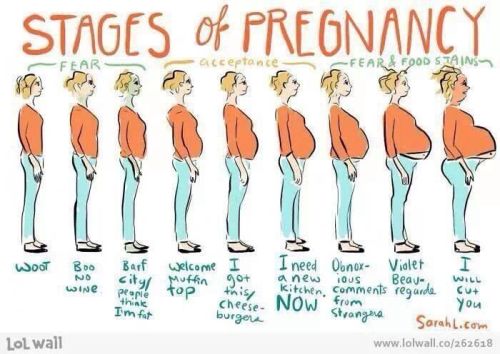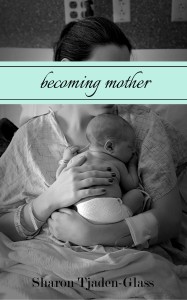Republicans: It’s All About Protecting Unborn Life, Right?
A few warnings:
I kind of ramble in this post. Forgive me for that. It’s very hard to create any coherent stream of thought in regard to this thick web of issues that have become impossible to disentangle as we talk about today’s current events.
If you prefer not to read a woman writing in an “unladylike” manner, now’s the time to close this page.
Call me bitchy. Or unladylike. Whatever.
Like many other women my age, you can’t shame me for not being ladylike.
Because we have seen that being the good girl often doesn’t get you ahead and it sure as hell doesn’t get you heard.
So if you’re still here, allow me to bitch away.
***
Republicans,
You’ve got a problem. With women, specifically.
You do realize that 50% of this country is women right? You do realize that women vote, don’t you? You do realize that younger women (a.k.a. the future electorate) are more likely to believe that women are not to blame for their own sexual assaults, right?
I don’t think you do. I think you’re still banking on the idea that there are enough people in this country that aren’t completely offended by your support, nay, your approval, of a man who has been accused of sexual assault by three different women.
But why should it matter to you?
After all, 19 women accused Trump of sexual assault and harassment, and “the American people” still elected him.
Right?
Your political calculation is pretty clear to me.
You have been so, so very eager to get to the godly business of making sure that women can’t have abortions. Ever, if possible.
(At least, that’s the cover story. I’m fairly certain your fervent support of Kavanaugh has more to do with your expectations about how he’ll rule on matters of political finance and other much more boring, but far more pernicious, topics that don’t captivate the attention and ire of millions of Americans.)
No. You are very eager to “protect the unborn.”
***
That’s still what all of this is about, right?
Protecting unborn life is the reason that you’re willing to promote a man who is accused of sexual assault by three women to the Supreme Court.
(Excuse me for a moment: My brain just threw up…)
That’s why millions of us watched Christine Blasey-Ford’s worst nightmare come true on live TV. That’s why we all tuned in to see what Brett Kavanaugh had to say about the accusations.
We’re in this political maelstrom because Judge Kavanaugh may be the deciding vote on future court cases that may overturn or severely chip away the protections of Roe v. Wade.
In short, what you, Republicans, are saying is that the rights of the unborn are decidedly much more sympathetic compared to the rights of women who have been sexually assaulted.
But today, many young women see attacks on Roe v. Wade as what they really are: attempts to control women’s sexuality and their bodies.
Maybe you’ve noticed lately that women in their 20s and 30s and 40s are not so easily shamed anymore by the old, “You don’t want to be a bad girl, do you?” playbook.
That has to be hard: to know that the women are becoming more impervious to the blows that knocked previous generations down far quicker and for far longer.
Today’s women get up much faster. They speak out much more.
And we aren’t going away.
***
Republicans,
Let me lay it out for you in the simplest terms possible (because I assume you are skimming. You’re busy. I get it. #MomLife)
You suck at making policies that help women.
(Probably because so many of you are Men-Who-Cannot-Imagine-the-World-Through-the-Eyes-of-Women.)
This is what is so frustrating about the Republican platform. Your campaign messages champion upholding family values, strengthening the economy, and keeping government small, but your political actions aim to create a very different reality for all of us.
Republicans, your track record is awful. Let me count the ways.
You hurt women by admitting that Blasey-Ford’s testimony was heart-wrenching and credible… but she still must be mistaken about who her attacker was.
You hurt girls by insisting that sexual assault committed by teenage boys is just “horseplay” or “roughhousing” and that men shouldn’t be accountable for the actions that they commit in high school.
But let’s not forget all of your…
Favorite Hits of Ways to Hurt Families:
You hurt families by cutting spending on education and forcing teachers into unspeakable working conditions. And then appointing Betsy DeVos. (Sigh).
You hurt families by cutting Medicaid even though most of your constituents depend on it.
You hurt families by cutting food stamps or raising the work requirements for those receiving welfare.
(Haven’t you heard unemployment is at an all-time low? What’s wrong with you? Go get an $8 an hour job to support your four kids, you Low Life! In fact, go get three of those jobs just so you can make ends meet and never see your kids. What? You can’t get enough hours in one place to qualify for health insurance? Guess you should have thought about that before you had four kids! Why didn’t you use birth control? Well, whose fault is it that you can’t afford it? It’s not the government’s responsibility to make it affordable for you to have birth control. Just stop sleeping with your husband or make him wrap it up. That shouldn’t be too hard, right? Take some responsibility for your reproductive powers!)
…is the message that seems to come together in a person’s brain when they consider the barrage of “typical conservative things to say in an argument.”
You hurt families by saying nothing when the leader of your party allowed children, toddlers, and babies to be taken from their parents’ arms when they came to the border seeking asylum from violence, blamed Democrats for the problem, backtracked, refused to accept responsibility for his actions (does he ever?), and then left our government bureaucracy to clean up his mess. (Oh, right. Sorry. Immigrants don’t count as “real families,” right? Feel free to disregard this point.)
But, remember, you also hurt the working poor by applauding Trump’s efforts to “blow up” Obamacare, even though it’s providing crucial health care for dying coal miners.
***
But what hurts the most today, in this moment, is that you hurt families by using women’s bodies as a political weapon.
And make no mistake–chipping away women’s rights hurts families.
But you care about protecting the unborn.
Right.
***
Does it scare you?
The very noticeable fact that…
We are on to you.
Who are we?
Women.
Women who work full-time, part-time, all-the-time.
Women who still make less money then men who do the same work (thanks to the cultural dilemma of gender in salary negotiations).
Women who pay taxes.
Women who still don’t have any nationwide guaranteed parental leave after giving birth.
Women who give birth in a country with unreasonably high maternal mortality compared to other developed countries.
Women who spend half of their salary on DAYCARE just so they can go to work. (Citation: Me).
Women who raise kids by themselves, with their with a partner, with cobbled-together daycare and babysitting, with parents, with friends when the sitter is sick.
Women who are routinely passed over for promotions based on the assumption that, because they’re mothers, they’re probably “more family-focused” at this point in their careers. (Never considering that those same families would probably benefit greatly from their mother’s promotion.)
We’re women who run PTOs.
And women who run for political office.
Women who do the grocery shopping, the oil changes, the doctor’s appointments, the RVSPs, the thank you cards, the school pictures, the flu shots, the pharmacy pick-ups, the fundraisers, the endless permission slips and photo releases and medical forms.
We’re almost always the ones that get called at work when a child is sick. And we’re often the ones who end up staying home with them.
We’re women.
Educated. News-watching. Well-read. Thinking. Talking. Podcasting. Blogging. Campaigning. Running. Voting. Women.
Republicans, you’re the first to talk about how expensive universal preschool would be or how un-American subsidized daycare would be, or how much guaranteed paid parental leave would hurt business…
In short, you sure know how to make women feel unusual, unwelcome, and burdensome.
But you’re welcome–for giving birth to your future tax-paying citizens.
(Can we please not pretend that our birthing and raising of children has no economic value? Since, apparently, that’s all you seem to care about. Oh right. No. You also care about “protecting unborn life.” And “born life?” That’s my responsibility. I’ve got it. Thanks for the clarification.)
***
I watched both of their testimonies.
And I believe her.
I. Believe. Her.
I think it’s clear that Ford is not some manufactured pawn in a widespread liberal conspiracy.
I also believe that Kavanaugh is furious that his family and his credibility are being raked through the mud now. (Maybe he grew up over the years? Maybe he’s different? Maybe he’s the same aggressive drunk that he was in high school? Hard to say. Maybe the hard-won FBI investigation will help clarify?)
And I believe that Kavanaugh is furious that Christine Blasey Ford is so credible and that his big chance of having his greatest dreams realized is coming crashing down all because he acted like a giant douche in high school.
Is that really so hard to believe that Brett Kavanaugh may have done these horrible things to girls and women?
Not for me, it isn’t. And I don’t think it’s hard for many women. We all remember guys just like him in our high schools. We remember similar jokes circulating in school about boys who joined the “Name of Girl” club, as a way to mark their sexual conquests.
We remember the college parties where some entitled, rich White guy drank way too much and thought shoving his penis in women’s faces was funny.
The more we’ve heard about Kavanaugh’s yearbook and the nicknames, the more we remember how small and dirty we felt when we received the jokes, the taunts, the “innocent” slaps or pinches, the touches.
And for some of us, we remember the groping. The assault. The rape.
All of us remember the shame, the shame, the shame.
I hope it’s all worth it to you, Republicans: the loss of confidence, indeed, the complete betrayal that women all over this country are feeling right now.
(And the women who don’t feel betrayed are still playing by your Good Girl playbook.)
But that’s not what angers me the most.
***
What angers me the most is that you hurt of all these people…
…and still most White evangelical Christians support your party.
Because, apparently, they believe that everything else is secondary to the primary goal of…
…protecting unborn life.
God works in mysterious ways…Who’s to say that Donald Trump isn’t a vessel that God is using to accomplish his purpose of ending abortion in this country?
… is a maddening rationalization of every abhorrent thing that our president has ever done and will do.
As a former evangelical Christian, this reasoning doesn’t surprise me.
But as a progressive Christian now, this logic absolutely disgusts me.
Republicans,
When you write policy against and vote against the poor and the vulnerable and the voiceless, you don’t represent the God’s love.
And it’s embarrassing for you to claim that you do.
But what do you care?
You’ll still be able to pay for an underground abortion if your wife finds out at 16 weeks that her baby has anencephaly and she’s already grieving for her child and you don’t want her to continue to carry the pregnancy, give birth, and watch her child die in her arms.
You’ll still be able to secure an abortion if, one day, your daughter really needs one–because she doesn’t want to raise a child with her prom date just because he didn’t have a condom and you thought she wasn’t old enough for the pill yet. (And the whole experience puzzles you because, it’s weird. Your daughter isn’t usually the kind of girl that gets in trouble like this. It’s not like she’s a slut, like the girls that this usually happens to. Right?)
But for me, you have crossed the point of no return on this.
You will never win my vote back. Ever.
Oh, it’s true, I was pretty sure that I’d never, ever vote Republican again after Trump was elected even though the entire country heard his raspy, old codger’s voice saying, grab ’em by the pussy.
But presidents aren’t elected for life.
So, never again.
You will never win my vote back. All because of your lack of empathy and foresight.
Because for you, the possibility of overturning Roe v. Wade was such a juicy prize that you were willing to steamroll right over the bodies of dozens of women and their claims of sexual assault.
But I wish you had courage to say what you really mean.
(Courage: Maybe you are familiar with the concept? It’s what Blasey-Ford demonstrated when she talked about her trauma, live, in front of a national audience.)
So, yes, I wish you had the courage to say what you really mean:
You don’t trust women.
Deep down, maybe you think women are conniving, manipulative, back-stabbing, selfish, and left unrestrained, whorish.
(Not the ones that you know, of course, but other women, definitely. You see it happen all the time.)
Deep down, maybe you think women need these laws to stay in place. To keep them from sleeping around and being sluts. Deep down, maybe you think that these laws will actually stop abortions from happening. Deep down, maybe you think that these laws will actually stop women from having sex with men with whom they don’t intend to have a family. (Or being raped by men with whom they don’t intend to start a family.)
Just kidding. Women can’t get pregnant by a “legitimate rape,” right?
But let’s be real.
Outlawing abortions won’t stop them from happening. Did Prohibition work? Nope. Instead, we got mafia and bootleggers. Did making marijuana illegal work? Nope. Just ask Jeff Sessions.
Or let’s turn to guns, your other favorite issue. Did making the AR-15 illegal work?
Oh, right. Just kidding. We would never dream of making a semi-automatic rifle illegal. That’s our constitutional American right. Right, Brett Kavanaugh?
But the right for women to control what happens to their bodies?
Nah, that’s not theirs to decide.
What happens in a woman’s body is no one’s business but the government’s.
Unless she’s assaulted by a future Supreme Court nominee.
Then what happened to her body is the business of the entire country.
It’s our right to be able to judge for ourselves how traumatized she really is.
It’s our right to be able to compare ourselves to Blasey-Ford and insist that we would definitely report a real sexual assault and speculate about the gaps in her testimony.
It’s our right to be able to hear all the details of the assault from both sides and decide that, ultimately, we’ll never know who’s telling the truth (and an FBI investigation would just take too much time and the Blue Wave is coming…), so let’s just quickly vote on this guy (even though we blocked Obama from having his SCOTUS nominee) so we don’t lose our chance to…
…protect unborn life.
Right?
I think I’ve got it now. Thanks for listening.
It all makes so much more sense now that I’ve written it out.















